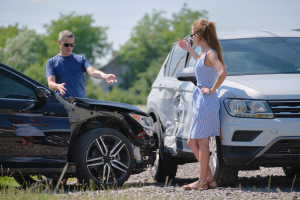
Driving a car is a fulfilling experience; however, it could ultimately turn into a devastating moment in a car accident. You could face mountains of medical bills, hospitalization fees, and other expenses that would drain your financial reserves.
Car accidents are inevitable, and they can happen anytime without warning. Hence, it is essential to be vigilant at all times when you are driving on the road.
Knowing what to do after a car accident that’s not your fault is vital to protect yourself and your rights. It’s hard to figure out what to do next after an accident, so we created this blog to protect your rights following an accident.
Table of Contents
The United States is one of the busiest countries worldwide. This is also mainly why most accidents happen, ranging from minor injuries to severe injuries and even death.
There are nearly 284 million vehicles in operation as of the third quarter of 2021. Over half of the 12.15 million vehicles involved in collisions in the United States in 2019 were passenger cars.
The number of traffic accidents per million people in the United States is expected to decline over the next few years, peaking at a little over 7,100 in 2025.
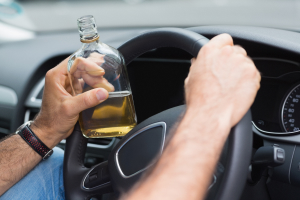
Most drivers know the general safety precautions and rules when using the roads. However, a car user’s negligence often results in accidents and car crashes.
Human mistake is the primary cause of accidents and crashes. In the list below, we are describing some of the typical human behavior that leads to accidents, such as:
According to the National Highway Traffic Safety Administration (NHTSA), there are more than 6 million car accidents in the United States annually.
It’s vital to prepare yourself a little in advance because you might not be able to think straight after an accident, no matter how terrible it was. Here are some steps to simplify the claims process both on the scene and afterward.
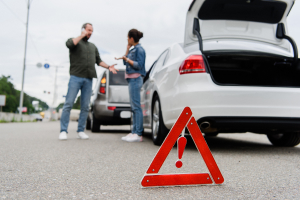
Immediate rescue is a must in every accident scene. When your car crashes, one of the hurdles that you might be suffering are injuries that could range from mild to severe injuries. After the collision occurs, assess the extent of your bodily injury. If you think it is safe to make movements, move your vehicle to safety and call 911.
Everything can be fuzzy minutes right after an accident. But you must remember that you must deal with other severe problems after the accident other than your injuries.
It would help if you financed yourself for the lost wages and medical expenses; even your pain and suffering need to be compensated. Hence, you must also gather evidence from the other driver and the accident scene. It would be best if you had the following:
These can be used when you file an accident report or police report. Take note that you can file a personal injury lawsuit when the other driver’s insurance company refuses to compensate you for your losses.
Furthermore, if you have already sought medical help, secure your medical records and the official police report for future use.
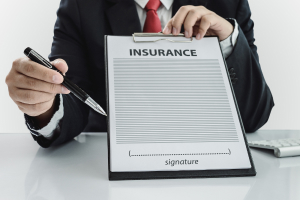
There are circumstances when the at-fault driver’s insurance is not enough to cover your damages; thus, you can only rely on your insurance policy to recover what’s lost to you during and after the car crash.
Even though you believe you are not responsible for the accident, you must inform your insurance company. In this case, you may submit a personal injury insurance claim to the other driver’s insurer and personal injury protection policy (PIP) to your insurance company.
Seeking compensation after an accident might be more complex and trickier than you think. That is why you need the legal advice of a personal injury lawyer who knows precisely the step-by-step process of dealing with personal injury claims.
After filing a car accident claim toward the other driver’s insurance company, and the at-fault driver’s insurer denied your request, you have all the legal rights to file a lawsuit against that at-fault driver for total compensation. Stay alert when you are in a car crash.
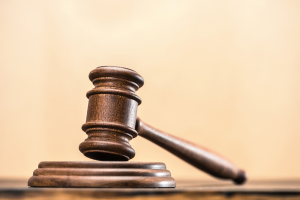
When you are involved in a car accident, the best thing you can do is seek immediate legal help from a car accident lawyer. Your attorney will negotiate with the car insurance company concerning the fair settlement you are looking for.
In addition, personal injury lawyers are knowledgeable and skilled in finding means to make the responsible driver compensate you for your medical expenses, property damage, and medical care. Your legal counsel will also do all of the paperwork that may add burden to you during your recovery period.
At Parker & McConkie law firm, we always prioritize the benefits of our clients. We give optimum quality to our service in every possible way.
Car accident injuries are always part of when a car accident occurs. Fortunately, you won’t be going through it alone since you can seek compensation from the at-fault driver by filing a third-party insurance claim.
However, filing a personal injury claim against the other driver differs from state to state. Let’s go over the difference between a no-fault and a fault state.
If your vehicle suffers any damages, you can use your own money for its repair costs, or you may file a collision damage claim to your insurer if the damage results in severe injuries or fatalities. This will allow you to recover from both economic damages and property damage.
In a no-fault state, the at-fault driver’s insurance company can still pay for your losses, but his insurance coverage only compensates for your catastrophic physical injuries.
An at-fault state, often known as a tort state, holds the driver who causes an automobile accident liable for the losses of the other party or parties. Either the at-fault driver can pay the other party directly out of pocket, or they can file an insurance claim.
Suppose you cause a collision and use your insurance to pay for the losses. In that case, your property damage liability pays for the other driver’s car damages, and your bodily injury liability pays for the other driver’s and passengers’ medical treatment.
Your insurance policy may cover automobile damages, your injuries, and those of your passengers, depending on your coverage. These coverages only pay up to your insurance limitations; any excess is your responsibility.
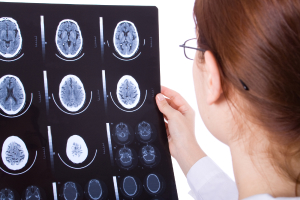
When an accident happens, the persons involved in the said accident may experience injuries that would lead to severe complications and permanently alter the person’s life.
Muscles, tendons, and ligaments are the most common soft tissues injured. These injuries happen during sports and exercise, sometimes from simple everyday activities.
Sprains, strains, and contusions, as well as tendinitis and bursitis, are common soft-tissue injuries. Even with appropriate treatment, these injuries may require a long time to heal.
A laceration is a skin tear from blades, tools, and machines. Deep lacerations can cause significant blood loss and heavy bruising.
Any injury to your brain, skull, or scalp is considered a head injury. Head injury can happen from a minor bump or bruise to severe brain injury. Concussions, skull fractures, and wounds to the scalp are typical head wounds.
Spinal cord injuries produce lasting alterations in strength, sensation, and other physiological functions below the injury site.
Fracture, crack, and break are all broken bones. A bone can be broken in several ways (crosswise, lengthwise, in multiple pieces).
Although bones are complex, they bend when pushed. If the force is too high, bones will break, as if a plastic ruler twisted too far.
Open fractures occur when bone pieces protrude through the skin or a wound penetrates the damaged bone. Once the skin is broken, the wound and bone might get infected.
Being involved in a car accident is an experience that would taunt you for a long time, significantly if you have been badly injured from that accident.
After the accident, you can seek compensatory and even punitive damages from the at-fault driver’s insurer or your own insurance company.
Compensatory damages refer to recoverable losses such as economic and noneconomic damages. The compensations the plaintiff receives will be used for his recovery and other medical expenses in the future concerning the accident.
Under compensatory damages, we have two sub-categories. These are economic damages and noneconomic damages.
In some cases, the court shall award the plaintiff punitive damages to punish the defendant for their behavior. Punitive damagesare only employed when the court finds out the defendant did wrongful behavior during the accident.
For example, when defective parts cause an accident in a car, its manufacturer releases the vehicle anyway despite knowing the defects.
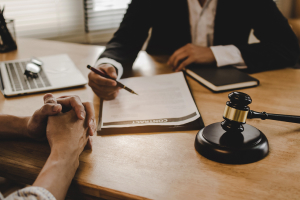
When you are involved in car accidents, you will be overwhelmed with the stress of your injuries and the financial hurdles that may get in your way. A car accident attorney will do most of the work, especially dealing with the insurance company.
Sometimes, an insurance company will downplay you. Instead of getting the maximum compensatory damages, they will only reward you with a minimal amount. Your financial problems with the insurance company are secured with your personal injury lawyer.
Another aspect where your lawyer is of great help is when you need to file a lawsuit against the other driver. Your legal counsel will build a solid case for you. With their expertise, you will surely be compensated for the damages that the accident might have caused you.

If you have been in an accident, we advise you to seek immediate medical care to avoid health complications. It is also essential to call the police immediately for proper documentation. Having knowledgeable people at the accident scene will help you in filing for your claims as they will identify the person involved and the at-fault party in the accident.
If you believe you are the victim of the accident, it is your right to file a third-party claim. Don’t hesitate to do so since you need to secure finances for your medical costs. Furthermore, it is also your right to identify the other driver’s name and his auto insurance company. You need this information for future transactions, especially when dealing with claims.
Our attorneys at Parker + McConkie have been known for our skills as personal injury lawyers for decades. The firm is dedicated to helping car accident victims recover from catastrophic events.
Parker + McConkie believes every individual has the right to quality legal service. Above all, we value attorney-client relationships at all times, for we want to preserve our clients’ trust. For a free consultation, call us at (801) 980-9708. We are happy to hear from you.



